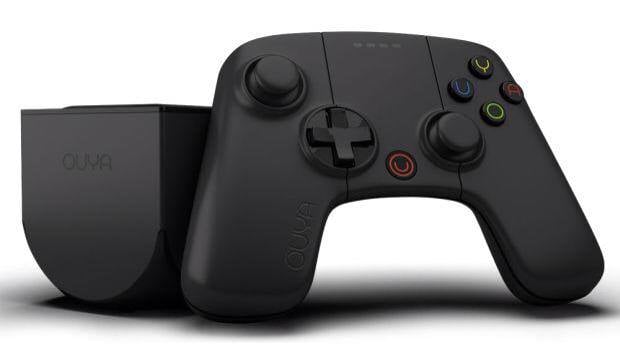After weeks of speculation and an accidental leak, gamer hardware maker Razer USA Ltd. of Carlsbad announced it had acquired the brand and software assets of console company Ouya.
The purchase included Ouya’s online store and catalog of Android-based games, but not the company’s hardware. Deal terms we not disclosed.
Ouya, of Santa Monica, was a much-hyped video game console based on Google Inc.’s Android operating system. Because Android is an open-source system, developers were able to build games without the development costs and hurdles associated with gaming systems like PlayStation or Xbox. Ouya started in 2012 when the company crowdsourced $8.6 million on Kickstarter from an enthusiastic community of independent game developers.
Despite independent developers creating more than 1,100 titles for Ouya¬ – most of which are casual and simple games – the company struggled to sell its consoles and profit from games listed in its online store.
The company prolonged its life via $25 million in venture capital over two rounds from Kleiner Perkins and Alibaba, and by taking on an undisclosed amount of debt from TriplePoint Capital.
But facing weak sales, Ouya couldn’t hold out forever. Unable to come to terms with creditors, rumors of a sale to computer hardware maker Razer surfaced in mid-June when investment bank MESA Global accidentally posted acknowledgement of the transaction to its website. Razer has now confirmed the purchase.
“Razer is the perfect home for Ouya and the team that made it all happen,” Ouya co-founder and Chief Executive Julie Uhrman said in a statement. Uhrman will not be joining Razer. “They can take the Ouya platform to new places, inspiring developers and embracing gamers, everywhere.”
Razer will integrate Ouya’s catalog of games into its own Android TV hardware product called Forge TV and 15 members of Ouya’s staff, mostly in software development, quality assurance and publishing, will join the company.
Razer is betting it can reboot what Ouya started in the Android video game market with an infusion of cash, corporate resources and better market timing.
“I think there’s a huge amount of potential for the Android market in the living room,” Razer Chief Executive Min-Liang Tan said. “Previous generations of PC games are now easily ported across the Android platform, so a lot more powerful games will be coming to the living room.”
Also, because mobile Android games can be mirrored onto Android-connected televisions or made into more enhanced games to be played on television, Tan said there was potential offloading mobile users onto Android TV.
“The mobile side is a great beachhead of sorts,” he said. “Think of Clash of Clans and Candy Crush, these are massive games on the Android platform and all of sudden these developers are going to get a new conduit into the living room.”
Ultimately, Razer will have to do what Ouya couldn’t: prove to gamers that Android TV games are worth playing.
“The nature of the games on the Android platform have been a little more casual,” said Tan. “But with the right developers in place you are going to see some really great games on the Android platform.”
Technology reporter Garrett Reim can be reached at [email protected]. Follow him on Twitter @garrettreim for the latest in L.A. tech news.

